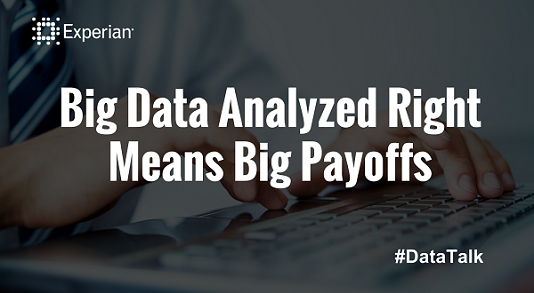Tech & Innovation

At Experian, we are continually innovating and using technology to find solutions to global issues, modernize the financial services industry and increase financial access for all.
Financial Empowerment

Our deep commitment to social and financial inclusion is reflected in our workplace culture, our partnerships and our efforts to break down the barriers to financial equity.
Financial Health

Our initiatives are dedicated to getting tools, resources and information to underserved communities so that consumers can best understand and improve their financial health.
Latest Posts:

 Nowadays, whenever you hear news about the automotive industry, a negative tone tends to pop up. Whether it’s the increase in lending to subprime consumers, or the lengthening in loan terms, the stories lead one to believe that the industry is headed toward another “bubble.”
However, that’s not necessarily the case. When we look at the data, the automotive finance market actually demonstrates a strong industry as a whole.
Nowadays, whenever you hear news about the automotive industry, a negative tone tends to pop up. Whether it’s the increase in lending to subprime consumers, or the lengthening in loan terms, the stories lead one to believe that the industry is headed toward another “bubble.”
However, that’s not necessarily the case. When we look at the data, the automotive finance market actually demonstrates a strong industry as a whole.

 The term big data tends to be overused in business today. While some refer to it as a technology and others a level of insight, it has come to embody many different data actions, from business intelligence, to analytics and data modelling.
We have become so obsessed with big data that we think we have to have this level of insight as a requirement to running a successful business.
The term big data tends to be overused in business today. While some refer to it as a technology and others a level of insight, it has come to embody many different data actions, from business intelligence, to analytics and data modelling.
We have become so obsessed with big data that we think we have to have this level of insight as a requirement to running a successful business.

Confronted with a vast amount of incoming data, today’s digital marketers are facing an on-going battle to keep up.

Recent Experian analysis of U.S. lending trends related specifically to HELOCs reveals important strategies to manage the end of draw period.

Considering a home purchase? Learn when others are consulting their credit and what they’re finding.

Experian’s use of data and insight to help dealers, manufacturers and consumers better understand the environment we live in and who is “going green”.

Today, Experian and the nationwide credit reporting agencies announced another important step in our work to improve the credit lives of consumers and create a healthier financial ecosystem. The settlement between 31 state attorneys general and Experian, Equifax and TransUnion concludes months of productive discussions and our industry is proud of the results.

John C. Linfield, Executive Director at the Institute for Financial Literacy, shares the importance of making an emotional connection to your finances.

 People are making a big deal about big data—and it is a big deal.
It has the power to guide us in addressing some of our nation’s most pressing needs, from protecting against fraud at the checkout counter to helping families secure affordable loans that help them accomplish their dreams. And like any powerful tool, it must be deployed wisely; in the wrong hands, as Hollywood saw recently, data can be hacked.
People are making a big deal about big data—and it is a big deal.
It has the power to guide us in addressing some of our nation’s most pressing needs, from protecting against fraud at the checkout counter to helping families secure affordable loans that help them accomplish their dreams. And like any powerful tool, it must be deployed wisely; in the wrong hands, as Hollywood saw recently, data can be hacked.

he 34th annual vision conference far exceeded expectations. On Monday, Experian’s North American CEO Craig Boundy welcomed conference attendees, asking everyone to Think BIG during the week.

At Experian we believe that data is good. In this column written for AdExchanger, Experian’s Emad Georgy explores big data and customer-centric marketing.

Experian Vision 2015 Conference focuses on ways data and analytics are transforming business, driving growth and solving business challenges.




